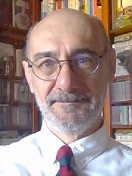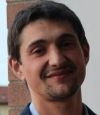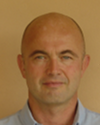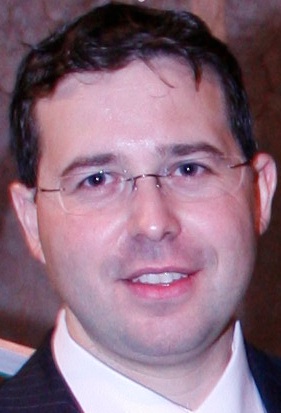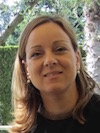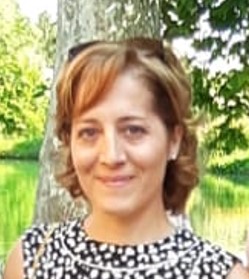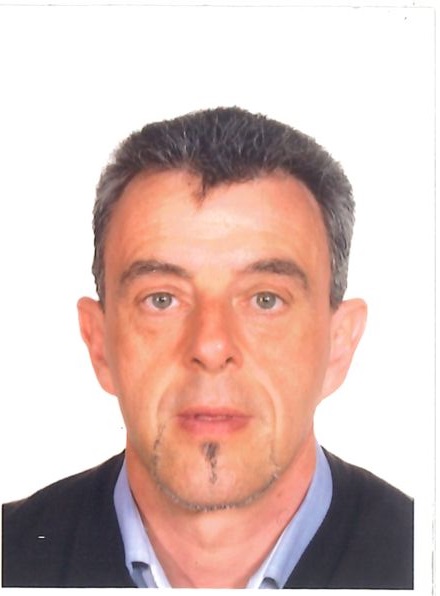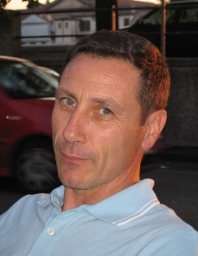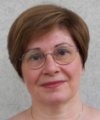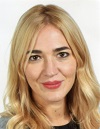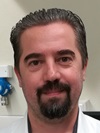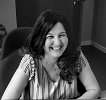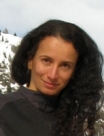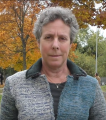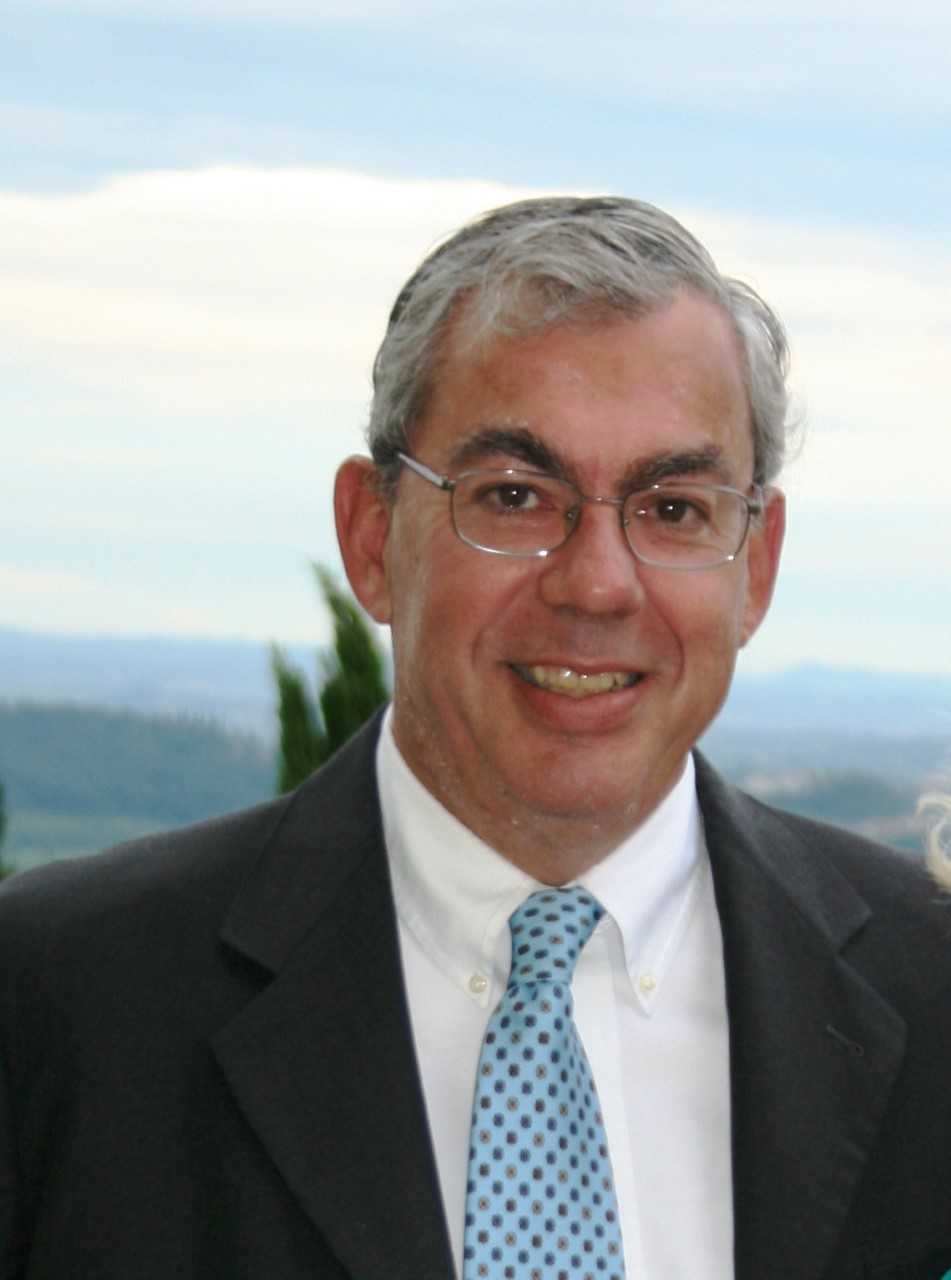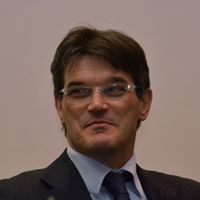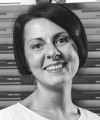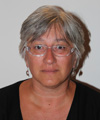Studiare
In questa sezione è possibile reperire le informazioni riguardanti l'organizzazione pratica del corso, lo svolgimento delle attività didattiche, le opportunità formative e i contatti utili durante tutto il percorso di studi, fino al conseguimento del titolo finale.
Calendario accademico
Il calendario accademico riporta le scadenze, gli adempimenti e i periodi rilevanti per la componente studentesca, personale docente e personale dell'Università. Sono inoltre indicate le festività e le chiusure ufficiali dell'Ateneo.
L’anno accademico inizia il 1° ottobre e termina il 30 settembre dell'anno successivo.
Calendario didattico
Il calendario didattico indica i periodi di svolgimento delle attività formative, di sessioni d'esami, di laurea e di chiusura per le festività.
| Periodo | Dal | Al |
|---|---|---|
| 1° semestre motorie | 1-ott-2020 | 29-gen-2021 |
| 2° semestre motorie | 1-mar-2021 | 31-mag-2021 |
| Sessione | Dal | Al |
|---|---|---|
| Sessione invernale 2020/21 e straordinaria 2019/20 | 25-gen-2021 | 26-feb-2021 |
| Sessione estiva | 3-giu-2021 | 2-lug-2021 |
| Sessione autunnale | 30-ago-2021 | 30-set-2021 |
| Sessione invernale straordinaria 2020/21 | 24-gen-2022 | 25-feb-2022 |
| Sessione | Dal | Al |
|---|---|---|
| Sessione estiva | 5-lug-2021 | 28-lug-2021 |
| Sessione autunnale | 11-ott-2021 | 5-nov-2021 |
| Sessione invernale straordinaria 2020/21 | 14-mar-2022 | 8-apr-2022 |
| Periodo | Dal | Al |
|---|---|---|
| FESTIVITA' OGNISSANTI | 1-nov-2020 | 1-nov-2020 |
| FESTIVITA' IMMACOLATA CONCEZIONE | 8-dic-2020 | 8-dic-2020 |
| VACANZE DI NATALE | 24-dic-2020 | 3-gen-2021 |
| VACANZE DI PASQUA | 2-apr-2021 | 5-apr-2021 |
| FESTIVITA' DELLA LIBERAZIONE | 25-apr-2021 | 25-apr-2021 |
| FESTIVITA' DEL LAVORO | 1-mag-2021 | 1-mag-2021 |
| FESTIVITA' DEL SANTO PATRONO SAN ZENO | 21-mag-2021 | 21-mag-2021 |
| FESTIVITA' DELLA REPUBBLICA | 2-giu-2021 | 2-giu-2021 |
| VACANZE ESTIVE | 14-ago-2021 | 22-ago-2021 |
Calendario esami
Gli appelli d'esame sono gestiti dalla Unità Operativa Segreteria Corsi di Studio Scienze Motorie.
Per consultazione e iscrizione agli appelli d'esame visita il sistema ESSE3.
Per problemi inerenti allo smarrimento della password di accesso ai servizi on-line si prega di rivolgersi al supporto informatico della Scuola o al servizio recupero credenziali
Per dubbi o domande leggi le risposte alle domande più frequenti F.A.Q. Iscrizione Esami
Docenti
 paoloriccardo.brustio@univr.it
paoloriccardo.brustio@univr.it
 marco.carradore@univr.it
marco.carradore@univr.it
 paola.cesari@univr.it
paola.cesari@univr.it
 lonardifabiola@gmail.com
lonardifabiola@gmail.com
 alberto.nuvolari@gmail.com
alberto.nuvolari@gmail.com
 gilberto.pilati@univr.it
gilberto.pilati@univr.it
 angeloluigi.sangalli@univr.it
angeloluigi.sangalli@univr.it
 fabio.sartori@univr.it
fabio.sartori@univr.it
 stefano-venturi@libero.it
stefano-venturi@libero.it
Piano Didattico
Il piano didattico è l'elenco degli insegnamenti e delle altre attività formative che devono essere sostenute nel corso della propria carriera universitaria.
Selezionare il piano didattico in base all'anno accademico di iscrizione.
1° Anno
| Insegnamenti | Crediti | TAF | SSD |
|---|
Biochimica del movimento
Didattica Applicata alle Scienze Motorie
Economia e legislazione applicate alle scienze motorie
Propedeutica chinesiologica e sportiva
2° Anno Attivato nell'A.A. 2021/2022
| Insegnamenti | Crediti | TAF | SSD |
|---|
Analisi del movimento e controllo motorio
Psicologia Applicata alle Scienze Motorie
Sociologia Applicata alle Scienze Motorie
Tecniche e metodologie dell'allenamento
3° Anno Attivato nell'A.A. 2022/2023
| Insegnamenti | Crediti | TAF | SSD |
|---|
Attivita' motorie preventive e adattate
Farmacologia e cardiologia applicate all' attivita' motoria
Malattie dell'apparato locomotore
Tecniche e didattica degli sport individuali e di squadra
| Insegnamenti | Crediti | TAF | SSD |
|---|
Biochimica del movimento
Didattica Applicata alle Scienze Motorie
Economia e legislazione applicate alle scienze motorie
Propedeutica chinesiologica e sportiva
| Insegnamenti | Crediti | TAF | SSD |
|---|
Analisi del movimento e controllo motorio
Psicologia Applicata alle Scienze Motorie
Sociologia Applicata alle Scienze Motorie
Tecniche e metodologie dell'allenamento
| Insegnamenti | Crediti | TAF | SSD |
|---|
Attivita' motorie preventive e adattate
Farmacologia e cardiologia applicate all' attivita' motoria
Malattie dell'apparato locomotore
Tecniche e didattica degli sport individuali e di squadra
| Insegnamenti | Crediti | TAF | SSD |
|---|
Legenda | Tipo Attività Formativa (TAF)
TAF (Tipologia Attività Formativa) Tutti gli insegnamenti e le attività sono classificate in diversi tipi di attività formativa, indicati da una lettera.
Biomeccanica [Matricole dispari] (2021/2022)
Codice insegnamento
4S02417
Docente
Coordinatore
Crediti
6
Lingua di erogazione
Italiano
Settore Scientifico Disciplinare (SSD)
M-EDF/01 - METODI E DIDATTICHE DELLE ATTIVITÀ MOTORIE
Periodo
2° semestre dal 1-mar-2022 al 27-mag-2022.
Sede
VERONA
Obiettivi formativi
Obiettivo del corso è di fornire gli strumenti culturali ed operativi per l’analisi biomeccanica del movimento umano e dello sport (su terra e in acqua). Parte del programma verrà svolto sotto forma di esercitazioni numeriche per consentire agli studenti di verificare da un punto di vista pratico le conoscenze teoriche acquisite e per familiarizzarsi con i principali mezzi di calcolo biomeccanico.
Programma
Sono previste lezioni teoriche (tutti gli studenti assieme) nelle quali saranno dati gli strumenti principali per le nozioni degli argomenti di cui sotto. Inoltre una parte quantitativamente minore sarà dedicata ad esperienze di esercitazione (anche su campo e/o in laboratorio, cercando di lavorare in gruppi di studenti più piccoli) per applicare le nozioni teoriche in un contesto sperimentale.
Gli argomenti che saranno affrontati nel corso sono:
-Cinematica lineare (Spostamento, velocità ed accelerazione lineare. Moto parabolico)
-Cinematica angolare (Coordinate polari. Spostamento, velocità e accelerazione angolari. Moto circolare uniforme)
-Dinamica lineare/angolare (Le leggi di Newton. Forze esterne e interne; forze normali e tangenziali; la distribuzione delle forze e la pressione. Le forze d’attrito. Lavoro e Potenza. Energia cinetica, potenziale ed elastica. Il principio di conservazione dell’energia. Impulso e momento lineare. Impatti e collisioni. Il coefficiente di restituzione)
-Meccanica muscolare (La curva forza-velocità e la curva forza-lunghezza. L’architettura muscolare e la tensione specifica. Proprietà meccaniche dei diversi tipi di fibre muscolari. Meccanica di tendini e legamenti: stress e strain, il modulo di Young)
-Cinetica/Dinamica angolare (Momento d’inerzia. Energia cinetica rotazionale. Momento torcente e centro di massa. Lavoro e potenza angolare. Principio di conservazione del momento angolare. Cenni di biomeccanica articolare)
-Biomeccanica dei fluidi (Statica: pressione idrostatica, principio di Archimede e coppia di torsione (under-water torque). Fluidodinamica: viscosità e numero di Reynolds. Principio di Bernoulli. Resistenza idrodinamica: drag di forma, di pressione e di frizione. Fluidi in moto lineare e turbolento, lo strato limite. Effetto Magnus)
Bibliografia
Modalità d'esame
Per tutti gli studenti (frequentanti e non frequentanti) si prevede lo svolgimento di un esame scritto (obbligatorio).
Tale esame scritto sarà costituito da domande aperte/chiuse e soprattutto da esercizi (con calcoli numerici, da svolgere con la sola calcolatrice) inerenti tutti gli argomenti affrontati nelle lezioni teoriche e nelle esperienze di esercitazione.
Inoltre, il docente prevede anche lo svolgimento di un esame orale per gli studenti la cui sufficienza (o valutazione) emersa dalla prova scritta non sia completamente "soddisfacente" (in questo caso, il docente vuole verificare anche tramite un colloquio orale le effettive competenze dello studente). Inoltre, è anche possibile l'esame orale per gli studenti che volessero migliorare il voto ottenuto nella prova scritta.
Tipologia di Attività formativa D e F
| anni | Insegnamenti | TAF | Docente | |
|---|---|---|---|---|
| 3° | Corso avanzato di nutrizione per lo sport | D |
Silvia Pogliaghi
(Coordinatore)
|
|
| 3° | Fisiologia dello sport - Sport physiology | D |
Silvia Pogliaghi
(Coordinatore)
|
|
| 3° | Metodi e tecniche per la valutazione della composizione corporea | D |
Carlo Zancanaro
(Coordinatore)
|
|
| 2° 3° | Basi fisiologiche della nutrizione per lo sport | D |
Silvia Pogliaghi
(Coordinatore)
|
|
| anni | Insegnamenti | TAF | Docente | |
|---|---|---|---|---|
| 3° | Tecnica e didattica del nordic walking | D |
Barbara Pellegrini
(Coordinatore)
|
|
| 2° 3° | Igiene applicata alle attivita' motorie | D |
Stefano Tardivo
(Coordinatore)
|
|
| 2° 3° | Statistica applicata alle attivita' motorie | D |
Maria Elisabetta Zanolin
(Coordinatore)
|
|
Prospettive
Avvisi degli insegnamenti e del corso di studio
Per la comunità studentesca
Se sei già iscritta/o a un corso di studio, puoi consultare tutti gli avvisi relativi al tuo corso di studi nella tua area riservata MyUnivr.
In questo portale potrai visualizzare informazioni, risorse e servizi utili che riguardano la tua carriera universitaria (libretto online, gestione della carriera Esse3, corsi e-learning, email istituzionale, modulistica di segreteria, procedure amministrative, ecc.).
Entra in MyUnivr con le tue credenziali GIA: solo così potrai ricevere notifica di tutti gli avvisi dei tuoi docenti e della tua segreteria via mail e a breve anche tramite l'app Univr.
Prova finale
La prova finale consiste nella presentazione e discussione di fronte ad una specifica commissione di un elaborato scritto su tematiche relative alle scienze e alla cultura del movimento e dello sport oppure ad ambiti a questi strettamente correlati.
L'elaborato viene predisposto dallo studente sotto la guida di un docente di riferimento ed eventuali suoi associati.
L'esame finale si svolge nei periodi dell'anno definiti nel calendario didattico pubblicato nel sito del corso di studio. Le informazioni relative all'organizzazione interna della sessione di laurea - giorni, orari, commissioni di esame - sono rese noti negli avvisi del corso di studio.
Elenco delle proposte di tesi e stage
| Proposte di tesi | Area di ricerca |
|---|---|
| ANTROPOMETRIA E COMPOSIZIONE CORPOREA NEL CALCIO | Argomenti vari |
| ANTROPOMETRIA TRIDIMENSIONALE - ESEMPI APPLICATIVI | Argomenti vari |
| Controllo posturale e locomozione in età evolutiva | Argomenti vari |
| EFFETTO DELLA VIBRAZIONE CORPOREA TOTALE SU PEDANA | Argomenti vari |
| Feedback Aumentativo e Apprendimento Motorio | Argomenti vari |
| Il ruolo della fatica cognitiva nella prestazione motoria e nella percezione corporea: teorie di riferimento e strumenti di indagine | Argomenti vari |
Gestione carriere
Tutorato per gli studenti
à Tutorato di supporto durante il percorso di studio
Le studentesse e gli studenti iscritti ai corsi di studio di Scienze motorie possono incontrare e/o contattare:
-
tutor studenti il cui compito è facilitare l’inserimento nel contesto universitario, offrendo supporto nelle pratiche relative alla carriera (compilazione del piano didattico, organizzazione degli esami, progetto di tirocinio, Erasmus e altro). I tutor svolgono, inoltre, un ruolo di “raccordo” nella comunicazione con i docenti.
I Tutor ricevono presso la sede di via Casorati, palazzo ex ISEF, piano terra. Tel. 045 842 5135.
-
docenti tutor che svolgono attività di counseling durante lungo tutto il percorso di studio, per fornire assistenza nel superamento di eventuali difficoltà didattiche e per rendere gli studenti più consapevoli e partecipi nel percorso di formazione.
Per prendere appuntamento, inviare una e-mail all’attenzione del docente tutor, indicando il proprio nome e cognome, corso di studio e anno di iscrizione.
à Tutorato per il recupero delle conoscenze di base (OFA)
I Tutor didattici sono presenti durante i corsi di recupero delle conoscenze di base – OFA (saperi minimi) di Matematica, Fisica e Chimica, organizzati per gli iscritti al corso di Laurea in Scienze delle attività motorie e sportive.
Le lezioni di recupero sono indicate direttamente nell'orario delle lezioni del 1° anno. Per conoscere le date degli esami, consultare il Calendario Esami.
à Flessibilità per Studenti-Atleti
Per gli studenti impegnati in ambito sportivo - in possesso di meriti di particolare rilievo agonistico - l'Ateneo di Verona mette a disposizione dei tutor di supporto, il cui compito è affiancare lo studente nella predisposizione di un piano di lavoro e nella risoluzione di questioni pratiche e organizzative, al fine di conciliare la carriera universitaria con quella sportiva. Per L’assegnazione del tutor è necessario presentare annualmente domanda di partecipazione al programma dual career: informazioni.
Orario lezioni
L’orario delle lezioni comprende
Lezioni Frontali in aula
Esercitazioni e laboratori
Questi ultimi sono organizzati per gruppi dai singoli docenti responsabili dei corsi.
L'orario è pubblicato nel portale studenti
Modalità di frequenza
Vige l'obbligo di frequenza al 70% come specificato nel Regolamento di ogni singolo corso di laurea e laurea magistrale:
Ulteriori informazioni:
L'accesso alle pagine Moodle dei singoli insegnamenti è vincolato alla compilazione del piano di studi.
App Univr Lezioni, FAQ e guida all'utilizzo sono disponibili al seguente link: orario-lezioni-e-modalita-di-frequenza
Comunicati: Avvisi per studenti
Tirocini e stage
I corsi di Laurea e Laurea magistrale di Scienze motorie prevedono lo svolgimento di attività di tirocinio durante il percorso formativo allo scopo di sviluppare specifiche competenze pratiche ed operative nell’ambito proprio delle attività motorie e sportive.
Alcune sono organizzate in modo integrato con gli insegnamenti del piano didattico, altre si svolgono presso le strutture interne dell'Università, altre ancora presso enti esterni. Inoltre, è possibile svolgere attività di tirocinio finalizzate all'esame finale di laurea, anche presso sedi universitarie estere convenzionate.
Il numero dei CFU - crediti formativi universitari di tirocinio da acquisire è indicato nel piano didattico - 1 CFU di tirocinio equivale a 25 ore di attività.
Per informazioni e modulistica per studenti, docenti e aziende: Servizio Tirocini e Stage – Scienze motorie
ORARIO FRONT OFFICE: da lunedì a venerdì, orario: 10.00 - 13.00
accedere con le credenziali GIA personali dal seguente link Zoom
Area riservata studenti
Recupero Obblighi Formativi - OFA
I corsi di supporto per il recupero degli Obblighi Formativi aggiuntivi - OFA di Chimica, Fisica, Matematica - sono organizzati annualmente e sono segnalati direttamente nell'orario delle lezioni del 1° anno ► vedi pagina.
Al termine di ciascun corso frequentato gli studenti dovranno sostenere e superare una prova scritta per colmare il debito entro il 15 dicembre dell'anno successivo, per potersi iscrivere al 2° anno.
►Date e orari degli appelli sono indicati nel Calendario Didattico - Calendario Esami.
In caso di mancato superamento degli obblighi formativi entro il 15/12, lo studente resterà iscritto al 1° anno anche per l'anno successivo come ripetente, dovrà sostenere la verifica di recupero in un altro appello e NON non potrà frequentare o sostenere gli esami del 2° anno.
Certificazione medica di idoneità
Riferimenti normativi principali: DM 24 aprile 2013 art. 3, GU 169 del 20-07-2013; Decreto del Ministro della Salute dell’8 agosto 2014 e s.m.i.
Per frequentare le attività dei corsi di Laurea e Laurea magistrale di Scienze motorie è obbligatorio presentare la certificazione medica di idoneità fisica per attività sportiva non agonistica. La certificazione è necessaria per accedere alle attività pratiche-esercitative e al tirocinio.
à COME OTTENERE LA CERTIFICAZIONE
La certificazione - riportante l’indicazione che è stato eseguito l’ECG a riposo - può essere rilasciata da:
- centri o servizi di medicina dello sport delle ASL (ora ATS) e delle aziende ospedaliere
- istituti della Federazione Medico Sportiva Italiana
- centri pubblici o privati autorizzati:
- dai medici di medicina generale di libera scelta, relativamente ai propri assistiti;
- dal medico specialista in medicina dello sport.
L’ECG a riposo deve essere ripetuto annualmente.
E’ ammesso anche il certificato medico di idoneità alla pratica sportiva agonistica, per chi ne fosse già in possesso.
à SCADENZA PER LA PRESENTAZIONE
La certificazione medica deve essere prodotta al momento dell'immatricolazione e, comunque, entro l’inizio delle lezioni alla Segreteria Corsi di Studio Scienze motorie. Spetta agli studenti rinnovarla annualmente alla scadenza - per ogni anno di iscrizione in corso o fuori corso. La Segreteria effettuerà periodicamente dei controlli sulla consegna dei certificati.
NOTA: Studenti immatricolati a seguito di SUBENTRO/RIPESCAGGIO/TRASFERIMENTO IN INGRESSO: se non è possibile rispettare la scadenza di presentazione del certificato sopra indicata, avvisare la Segreteria Corsi di Studio Scienze, scrivendo all’indirizzo certmed.scienzemotorie@ateneo.univr.it
à MODALITA’ DI CONSEGNA
La certificazione va inviata alla Segreteria Corsi di Studio Scienze motorie dalla propria e-mail istituzionale nome.cognome@studenti.univr.it all’indirizzo certmed.scienzemotorie@ateneo.univr.it.
Esami propedeutici
Alcuni insegnamenti del piano didattico sono definiti "propedeutici", perchè permettono di acquisire le conoscenze necessarie per affrontare lo studio di insegnamenti successivi. Di conseguenza, è obbligatorio superare gli esami degli insegnamenti propedeutici prima di sostenere gli esami di un anno seguente. Le propedeuticità presenti sono indicate di seguito nella tabella:
| Anno | Esami propedeutici | Anno | Esami che richiedono il superamento di propedeuticità | |
| 1 | Biologia | prima di | 2 | Fisiologia |
| Anatomia umana | ||||
| 1 | Biologia | prima di | 2 | Biomeccanica |
| Anatomia umana | ||||
| 1 | Biologia | prima di | 2 | Tecniche e metodologie dell'allenamento |
| Anatomia umana | ||||
| Biochimica del movimento | ||||
| 2 | Fisiologia | |||
| 1 | Biologia | prima di | 3 | Tecniche e didattica degli sport individuali e di squadra |
| Anatomia umana | ||||
| Biochimica del movimento | ||||
| 2 | Fisiologia | |||
| Tecniche e metodologie dell’allenamento | ||||
| 1 | Biologia | prima di | 3 | Attività motorie preventive e adattate |
| Anatomia umana | ||||
| Biochimica del movimento | ||||
| 2 | Fisiologia | |||
| Tecniche e metodologie dell’allenamento | ||||
| 1 | Biologia | prima di | 3 | Malattie dell'apparato locomotore |
| Anatomia umana | ||||
| 2 | Fisiologia | |||
| 1 | Biologia | prima di | 3 | Farmacologia e cardiologia applicate all'attività motoria |
| Anatomia umana | ||||
| 2 | Fisiologia | |||
Competenze linguistiche/Esercitazioni CLA
Il piano didattico del corso di Laurea in Scienze delle attività motorie e sportive prevede l’acquisizione di 2 CFU di Lingua straniera, che corrispondono a una competenza linguistica di livello B1 informatizzato.
I crediti di lingua straniera si ottengono frequentando uno dei corsi organizzati dal CLA – Centro Linguistico di Ateneo https://cla.univr.it/it/didattica#EsercitazioniLing - consultando l'offerta nel sito per le iscrizioni e l'orario delle lezioni.
Dopo avere superato l'esame previsto al termine di ciascun corso e avere ottenuto la certificazione di livello, sarà necessario iscriversi in Esse3 al primo appello utile di "Lingua straniera" per fare verbalizzare l'esito e i relativi crediti nel libretto.
►Gli studenti già in possesso di certificazioni linguistiche ottenute presso enti esterni possono richiedere il certificato di equipollenza al CLA, in modo che l'idoneità linguistica sia registrata e risulti nel libretto elettronico. Per accedere al servizio cliccare il link:
https://cla.univr.it/it/servizi/riconoscimento-delle-certificazioni-linguistiche-esterne
DOPO LA LAUREA TRIENNALE
Per proseguire gli studi in uno dei corsi di Laurea Magistrale dell'ambito delle Scienze motorie è necessario possedere competenze linguistiche almeno di livello B1 informatizzato (o superiore) specificamente di lingua inglese, poichè i corsi di studio di livello superiore prevedono nel proprio piano didattico la presenza di insegnamenti o di moduli impartiti dai docenti direttamente in inglese.
Inoltre, tali competenze costituiscono requisito di accesso indispensabile per poter partecipare alla prova di ìngresso oppure per iscriversi ad una laurea magistrale. La conoscenza di altre lingue diverse dall'Inglese NON può venire riconosciuta come "requisito" utile per l'accesso ai corsi di laurea magistrale. Tuttavia, la certificazione posseduta potrà essere valutata da un'apposita Commissione di docenti ed eventualmente riconosciuta in termini di crediti (CFU) a scelta dello studente, presentando domanda al momento dell'immatricolazione.
Si invita a leggere con attenzione i bandi di concorso annuali per l'ammissione ai corsi di laurea magistrali per maggiori informazioni - consultare nel sito del corso di studio anche la sezione "Iscriversi".

 +39 045 842 5117
+39 045 842 5117


